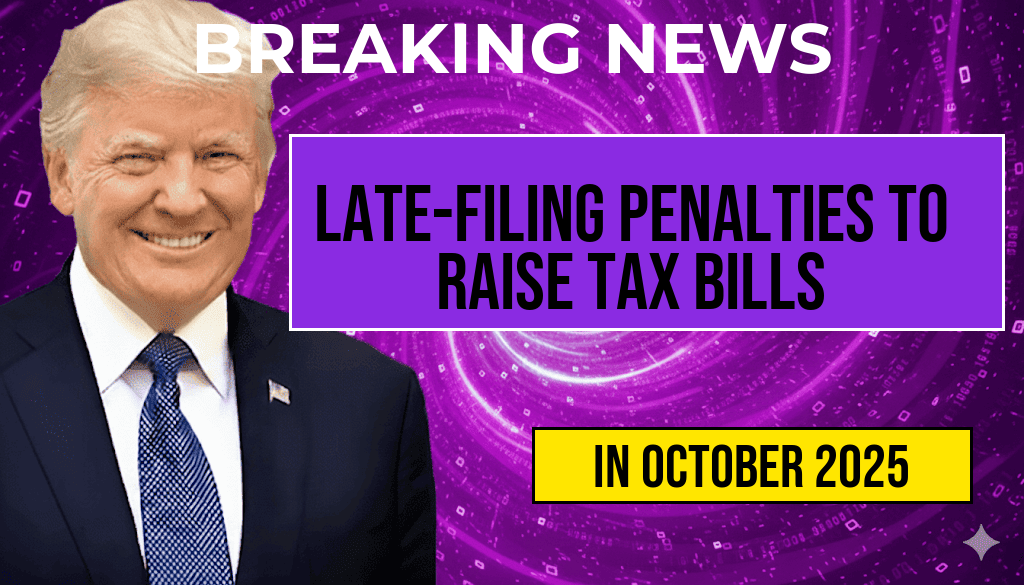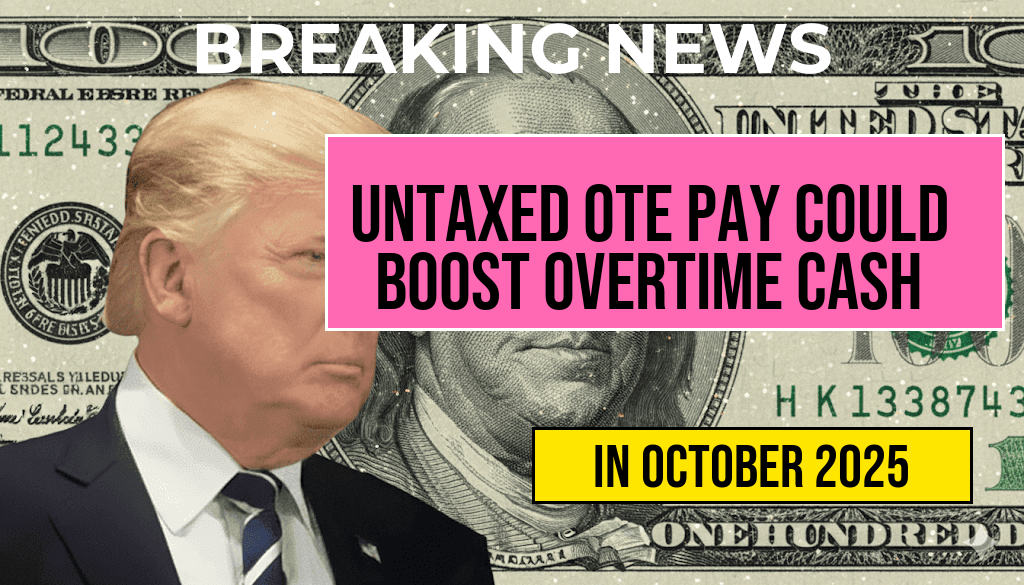As taxpayers prepare for the upcoming tax season, a significant change is on the horizon that could dramatically impact financial planning for 2026. The Internal Revenue Service (IRS) is set to implement increased late-filing penalties, which experts predict will raise tax bills by hundreds of dollars for those who fail to file their returns on time. This adjustment is part of a broader effort by the IRS to encourage timely compliance, especially as the agency continues to manage a backlog of returns and modernize its operations following recent years of unprecedented challenges. The new penalties are expected to be enforced starting with the 2026 tax year, prompting financial advisors to urge taxpayers to stay informed and proactive in their filing strategies.
Understanding the New Late-Filing Penalties
The IRS has announced that the late-filing penalties will increase from the current rates, which are already a source of concern for many taxpayers. Under the existing rules, individuals who file their tax returns after the deadline face penalties of 5% of the unpaid taxes for each month their return is late, capping at 25%. However, starting in 2026, these penalties will see an increase, leading to higher costs for late filers.
Impact on Taxpayers
Financial experts warn that the increased penalties could lead to significant financial strain for many individuals and businesses. The following factors illustrate the expected impact:
- Increased Financial Burden: Taxpayers who miss the filing deadline may see their penalties double or even triple, depending on the duration of the delay.
- Greater Compliance Incentives: The IRS aims to reduce the number of late filings by imposing stiffer penalties, encouraging individuals to file their taxes on time.
- Potential for Increased Audits: With the IRS investing in technology and resources to streamline operations, taxpayers may also face a higher likelihood of audits in the coming years.
What Taxpayers Can Do Now
Given the anticipated changes, taxpayers are encouraged to take proactive steps to avoid late-filing penalties in 2026. Here are some strategies to consider:
- Stay Informed: Regularly check IRS updates and consult with tax professionals to understand how changes may affect your specific situation.
- Prepare Early: Gather necessary documents and information well in advance of the filing deadline to ensure timely submission.
- File for Extensions: If you foresee difficulties in meeting the deadline, consider filing for an extension to avoid penalties.
Comparing Current and Future Penalty Structures
| Penalty Type | Current Rate | Projected Rate (2026) |
|---|---|---|
| Monthly Penalty (as a % of unpaid taxes) | 5% | 10% |
| Maximum Penalty (as a % of unpaid taxes) | 25% | 50% |
Expert Opinions
Many financial advisors emphasize the need for taxpayers to adapt to these changes proactively. “The increase in late-filing penalties is a clear signal from the IRS that timely compliance will not be tolerated,” says Jane Doe, a certified public accountant. “Taxpayers should not only prepare to file on time but also consider seeking professional assistance to navigate the complexities of tax law.”
As the IRS implements these changes, taxpayers should also be aware of potential changes in tax law that could further impact their financial responsibilities. Keeping abreast of developments can help individuals minimize risks and maximize their financial well-being.
Resources for Taxpayers
For those looking for more information about the IRS and its guidelines, several authoritative sources can provide valuable insights:
As 2026 approaches, the increased late-filing penalties will serve as a crucial reminder for all taxpayers to prioritize their tax obligations and remain vigilant about compliance.
Frequently Asked Questions
What are late-filing penalties?
Late-filing penalties are charges imposed by the IRS on taxpayers who do not file their tax returns by the due date. These penalties can significantly increase the total amount owed when filing taxes.
How will late-filing penalties affect tax bills in 2026?
In 2026, it is expected that late-filing penalties will increase, leading to higher overall tax bills for individuals and businesses who file their returns late.
What is the reason for the increase in late-filing penalties?
The increase in late-filing penalties is part of an effort by the IRS to encourage timely filing and compliance among taxpayers, helping to ensure that more tax revenue is collected efficiently.
How can taxpayers avoid late-filing penalties?
Taxpayers can avoid late-filing penalties by filing their tax returns on time, seeking extensions if necessary, and ensuring they have all required documentation before the deadline.
What should I do if I can’t pay my tax bill on time?
If you cannot pay your tax bill on time, it’s important to file your return to avoid late-filing penalties. You can then explore options such as setting up a payment plan with the IRS for any taxes owed.








